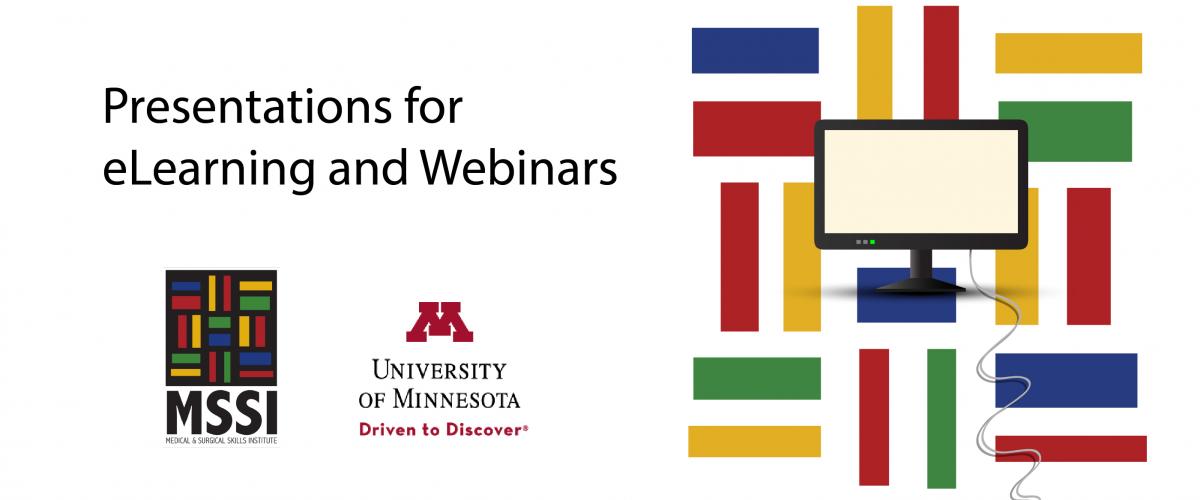The University of Minnesota Partners with Ghana NGO to Deliver Online COVID-19 Training
The Center for Global Health and Social Responsibility (CGHSR) is partnering with the Medical and Surgical Skills Institute (MSSI) in Ghana to convert existing courses to online platforms and develop new COVID-19 and primary care courses.
The MSSI is a health training center based in Ghana that provides medical and surgical skills training using modern equipment and technology in order to advance health care in West Africa. At the request of the Ghana government and West African College of Surgeons, the MSSI has been encouraged to disseminate training that will prepare Ghanian and West African health care providers to treat patients afflicted with COVID-19. The MSSI has a recognized expertise in medical skills training, but delivery through online platforms is a new undertaking.
“What makes the UMN/MSSI partnership so very special is the humble manner and the cultural sensitivity of the UMN team. They did not come in with an agenda. Instead, they spent a lot of time getting to know the MSSI team. After developing this relationship, the UMN team listened to the MSSI in order to understand our skills and capabilities. They showed great respect for the individuals of the MSSI,” said Myron Aldrink, the MSSI board chair.
The MSSI is leveraging the University of Minnesota’s expertise in leading global trainings in the conversion of medical training materials to online learning platforms as well as emerging research and clinical knowledge in treating COVID-19. CGHSR has deep expertise in developing and implementing global health training, ranging from public health and primary care to infectious disease response, with global partners. In this project, the MSSI and CGHSR bring their respective expertise to amplify the reach and impact of training across West Africa.
“MSSI has been an amazing partner for our team,” said Shailey Prasad, MD, MPH, director for CGHSR. “They are a perfect nodal organization that connects with academia and health care to understand their needs, ministries of health and international organizations. We have been impressed with their team as they adapt quickly while maintaining a focus on both the high quality of training and meeting the needs of the community. While we are sharing our knowledge, we are also learning a lot from them."
Building eLearning Capacity
The MSSI and CGHSR will adapt course content for online platforms, train course facilitators to lead courses, and deliver live and recorded webinars. Additional partners at the University of Minnesota include the Center for Animal Health and Food Safety (CAHFS) and M Simulation, both of whom have expertise in facilitating global trainings and converting educational curriculum to online learning platforms.
“Many organizations are working to build e-learning capacity as COVID-19 restrictions continue to impact in-person learning, this is true for the University of Minnesota and for so many of our partners worldwide. It is not an overstatement to say, ‘we are all in this together’ and that sharing valuable skills, approaches, and lessons learned is absolutely critical to support human, animal, and public health workers in their efforts against COVID and other infectious diseases,” said Mary Katherine O'Brien, PhD, a researcher for education and outreach from CAHFS.
Several online trainings have taken place so far. The University of Minnesota team demonstrated practical adjustments to online presentations that promote learning and retention of knowledge and skills to 40 MSSI instructors, who have gone on to conduct 20 online courses training more than 5,000 medical professionals across West Africa. CGHSR executive director Prasad recently moderated an online panel on COVID-19 that included leading Ghana doctors and nurses. Upcoming courses will address basic public health, contact tracing, early detection of COVID-19, appropriate pre-hospital care practices, and chronic disease management. Training will be geared toward early identification and mitigation in case of re-emergence of COVID-19.
Fostering Long-Term Relationships
“The MSSI has great trust and respect for the University of Minnesota and look forward to further efforts together,” said Aldrink. “We could not have developed the online training as quickly as we did without the kind support of the University of Minnesota, whose efforts have been invaluable. We are eager to reciprocate and help the University of Minnesota in any way possible.”
The University of Minnesota-MSSI collaborative aims to improve the long-term resilience of health systems across West Africa.
“The MSSI has collaborated with several universities in the U.S. and Europe to organize training programs aimed at improving the skills of health professionals and strengthening the health systems in the west African sub region, however the relationship with the University of Minnesota has brought out the best in the MSSI team,” said Kwame Agyire, the MSSI executive director. “The UMN team never comes to the discussion table with already carved out solutions, but are always ready to listen, tease out challenges, and help come up with solutions to our training needs whilst taking in technological and supply limitations and socio-cultural considerations.”
